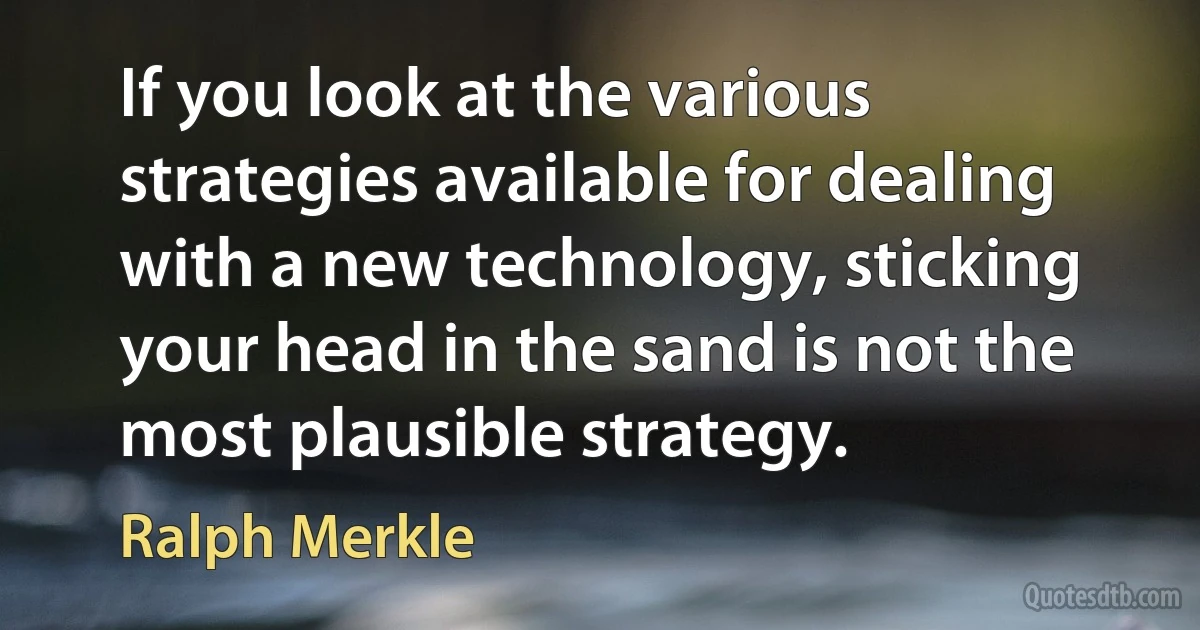Dealing Quotes - page 17
In common with other men, the business man is moved by ideals of serviceability and an aspiration to make the way of life easier for his fellows... Motives of this kind detract from business efficiency, and an undue yielding to them on the part of business men is to be deprecated as an infirmity. Still, throughout men's dealings with one another and with the interests of the community there runs a sense of equity, fair dealing, and workmanlike integrity.

Thorstein Veblen
Obama: Now, I swore an oath to uphold the laws on the books, but that doesn't mean I don't know very well the real pain and heartbreak that deportations cause. I share your concerns and I understand them. And I promise you, we are responding to your concerns and working every day to make sure we are enforcing flawed laws in the most humane and best possible way. Now, I know some people want me to bypass Congress and change the laws on my own. [Applause] And believe me, right now dealing with Congress -
Audience: Yes, you can! Yes, you can! Yes, you can! Yes, you can! Yes, you can!
Obama: Believe me - believe me, the idea of doing things on my own is very tempting. [Laughter] I promise you. Not just on immigration reform. [Laughter] But that's not how - that's not how our system works.
Audience member: Change it!
Obama: That's not how our democracy functions. That's not how our Constitution is written. So let's be honest. I need a dance partner here - and the floor is empty.

Barack Obama
Many if not most of his decisions are thrust upon the president, out of the blue, by events beyond his control: oil spills, financial panics, pandemics, earthquakes, fires, coups, invasions, underwear bombers, movie-theater shooters, and on and on and on. They don't order themselves neatly for his consideration but come in waves, jumbled on top of each other. "Nothing comes to my desk that is perfectly solvable,” Obama said at one point. "Otherwise, someone else would have solved it. So you wind up dealing with probabilities. Any given decision you make you'll wind up with a 30 to 40 percent chance that it isn't going to work. You have to own that and feel comfortable with the way you made the decision. You can't be paralyzed by the fact that it might not work out.” On top of all of this, after you have made your decision, you need to feign total certainty about it. People being led do not want to think probabilistically.

Barack Obama
The idea of where does an idea come from and who should get credit for it is pretty soft. But I think people are pretty good at dealing with that softness and recognizing contribution when they know the people involved. With collective ownership, we create a social situation where you can get to know a person by how they spin their intellect into source code statements.

Ward Cunningham
You cannot stay the shell in its flight; after it has left the mortar, it goes on to its mark, and there explodes, dealing destruction all around. Just as little can you stay the consequences of a sin after it has been committed. You may repent of it, you may even be forgiven for it, but still it goes on its deadly and desolating way. It has passed entirely beyond your reach; once done, it cannot be undone.

William Mackergo Taylor
I want to continue the series of sermons this morning that I started several weeks ago. The series dealing with problems of personality integration. This morning our subject is: "Conquering Self-centeredness.” ... I at least want to suggest certain ways to conquer self-centeredness and at least place the subject before you. So that you can go out and add the meat and try, in some way, to make it meaningful and practical in your everyday lives.

Martin Luther King Jr.
The truth is, that this question is one of national importance, and we cannot help dealing with it: we must do something about it, whether we will or not. We cannot avoid it; the subject is one we cannot avoid considering; we can no more avoid it than a man can live without eating. It is upon us; it attaches to the body politic as much and as closely as the natural wants attach to our natural bodies. Now I think it important that this matter should be taken up in earnest, and really settled. And one way to bring about a true settlement of the question is to understand its true magnitude.

Abraham Lincoln
I came into the room which was half-dark and presently spotted Lord Kelvin in the audience, and realised that I was in for trouble at the last part of my speech dealing with the age of the Earth, where my views conflicted with his.
To my relief, Kelvin fell fast asleep, but as I came to the important point, I saw the old bird sit up, open an eye and cock a baleful glance at me.
Then a sudden inspiration came, and I said Lord Kelvin had limited the age of the Earth, provided no new source [of heat] was discovered. That prophetic utterance referred to what we are now considering tonight, radium! Behold! The old boy beamed upon me.

Ernest Rutherford
The advent of the Computer age has stimulated a rapid expansion in the use of quantitative techniques for the analysis of economic, urban, social, biological and other types of systems in which it is the animate rather than in dominant role. At present, most of the techniques employed for the analysis of humanistic, i.e., human centred systems are adaptations of the methods that have been developed over a long period of time for dealing with mechanistic systems, i.e., physical systems governed in the main by-the laws of mechanics, electromagnetism, and thermodynamics. The remarkable successes of these methods in unraveling the secrets of nature and enabling us to build better and better machines have inspired a widely held belief that the same or similar techniques can be applied with comparable effectiveness to the analysis of humanistic systems.

Lotfi A. Zadeh
The idea underlying such endless discussion and dreaming about the physical act is that sexual expertise confers worldliness and is therefore part of becoming an affirmed individual. This is a curious suggestion... Sex is many things - a need, a desire, an emotion, a release - but it has nothing to do with worldly sophistication, character building or even existential action. Sex, in general, is more of an obstacle than anything else for those who wish to free themselves and act as individuals... [W]e aren't dealing with a successful affirmation of responsible individualism in the real world. We are creating private dreams which compensate for the fracturing of the individual and the castration of his or her power in public life.

John Ralston Saul



